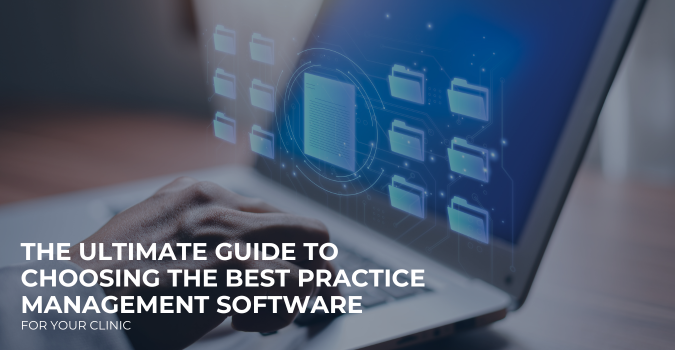In today’s fast-paced digital world, patients expect the same level of convenience and accessibility from…

How to Optimise your Medical Website for Search Engines
In today’s digital age, having a strong online presence is crucial for any medical practice. Patients increasingly turn to the internet to find healthcare providers, read reviews, and seek medical information. Therefore, optimising your medical website for search engines is essential to attract and retain patients. This blog will guide you through the key strategies for enhancing your medical website’s SEO, ensuring you reach more potential patients effectively.
Understanding SEO for Medical Websites
Search Engine Optimization (SEO) involves improving your website’s visibility on search engines like Google. Effective SEO strategies ensure that when potential patients search for relevant medical services or information, your website appears prominently in the search results.
Why SEO Matters for Medical Practices
If your medical website isn’t optimised for search engines, you’re missing out on a massive opportunity to connect with potential patients. Effective SEO increases your website’s visibility, attracts qualified leads, and establishes your practice as a trusted resource, ultimately driving new patient acquisition and growth. Here are some advantages of medical practice website optimisation:
- Increased Visibility: Higher search engine rankings lead to increased visibility, which translates into more website traffic and potential patients.
- Credibility and Trust: Websites that appear at the top of search results are often perceived as more credible and trustworthy.
- Competitive Advantage: With many healthcare providers competing for online attention, effective SEO can give you a significant edge over competitors.
Effective SEO Strategies for Medical Websites
When it comes to optimising medical websites for search engines, implementing effective SEO strategies is crucial. Here are some key approaches to enhance your healthcare website’s visibility, improve search engine ranking, and attract more patients searching for the services you offer.
Keyword Research and Optimisation
- Identifying Relevant Keywords: Start by identifying the keywords and phrases that potential patients use to search for medical services. Use tools like Google Keyword Planner, SEMrush, or Ahrefs to find relevant keywords related to your specialties.
- On-Page Optimization: Title Tags and Meta Descriptions: Ensure each page has a unique title tag and meta description incorporating your target keywords.
- Header Tags: Use H1, H2, and H3 tags to structure your content and include keywords naturally.
- Content Optimization: Write high-quality, informative content that answers patients’ questions and includes relevant keywords.
Quality Content Creation
- Blogging: Maintain a blog with regular posts about common medical conditions, treatments, and healthcare tips. This not only helps with SEO but also establishes your practice as an authority in the field.
- Patient Education: Create detailed guides and FAQs addressing common patient concerns. This can improve user engagement and retention on your site.
Technical SEO
- Website Speed: Ensure your website loads quickly. Use tools like Google PageSpeed Insights to identify and fix issues that may slow down your site.
- Mobile Optimisation: With many users accessing websites via mobile devices, having a mobile-friendly site is crucial. Use responsive design to ensure your site works well on all screen sizes.
- Secure Website (HTTPS): Ensure your website is secure by using HTTPS. This not only protects patient data but also boosts your SEO, as search engines prefer secure sites.
Local SEO
- Google My Business: Claim and optimise your Google My Business listing. Ensure your practice’s name, address, and phone number (NAP) are consistent across all online platforms.
- Local Citations: List your practice in relevant local directories and medical directories. This helps improve your local search rankings.
- Reviews and Testimonials: Encourage satisfied patients to leave positive reviews on Google and other review platforms. Respond to reviews to show that you value patient feedback.
Backlink Building
- Quality Backlinks: Earn backlinks from reputable websites, such as medical journals, health blogs, and local news sites. This signals to search engines that your site is a credible source of information.
- Guest Blogging: Write guest posts for reputable medical and healthcare blogs, including links back to your website. 33
Analytics and Monitoring
- Track Performance: Use tools like Google Analytics and Google Search Console to monitor your website’s performance. Track metrics such as organic traffic, bounce rate, and keyword rankings.
- Regular Audits: Conduct regular SEO audits to identify and fix any issues that may arise. Stay updated with the latest SEO best practices and algorithm changes.
Partnering with MedicalIT.Services for Optimal SEO
Optimising your medical website for search engines can be complex and time-consuming. This is where professional SEO services can make a significant difference. MedicalIT.Services specialises in providing top-notch SEO services tailored specifically for medical practices. Their team of experts understands the unique needs of healthcare providers and can implement effective strategies to improve your online visibility, attract more patients, and grow your practice.
Why Choose MedicalIT.Services?
- Specialised Expertise: MedicalIT.Services has extensive experience working with medical practices, ensuring strategies are tailored to the healthcare industry.
- Proven Results: Their SEO strategies are backed by proven results, helping many practices achieve higher search engine rankings and increased patient inquiries.
- Comprehensive Services: From keyword research to technical SEO, content creation, and backlink building, MedicalIT.Services offers a comprehensive suite of SEO services.
- Ongoing Support: SEO is an ongoing process, and MedicalIT.Services provide continuous support and optimization to ensure long-term success.
Conclusion
Optimising your medical website for search engines is essential to stay competitive and attract new patients in the digital age. By implementing the strategies outlined in this blog and partnering with experts like MedicalIT.Services, you can enhance your online presence, build trust with potential patients, and grow your medical practice. Focus on delivering valuable content, maintaining technical excellence, and leveraging local SEO to achieve the best results.




